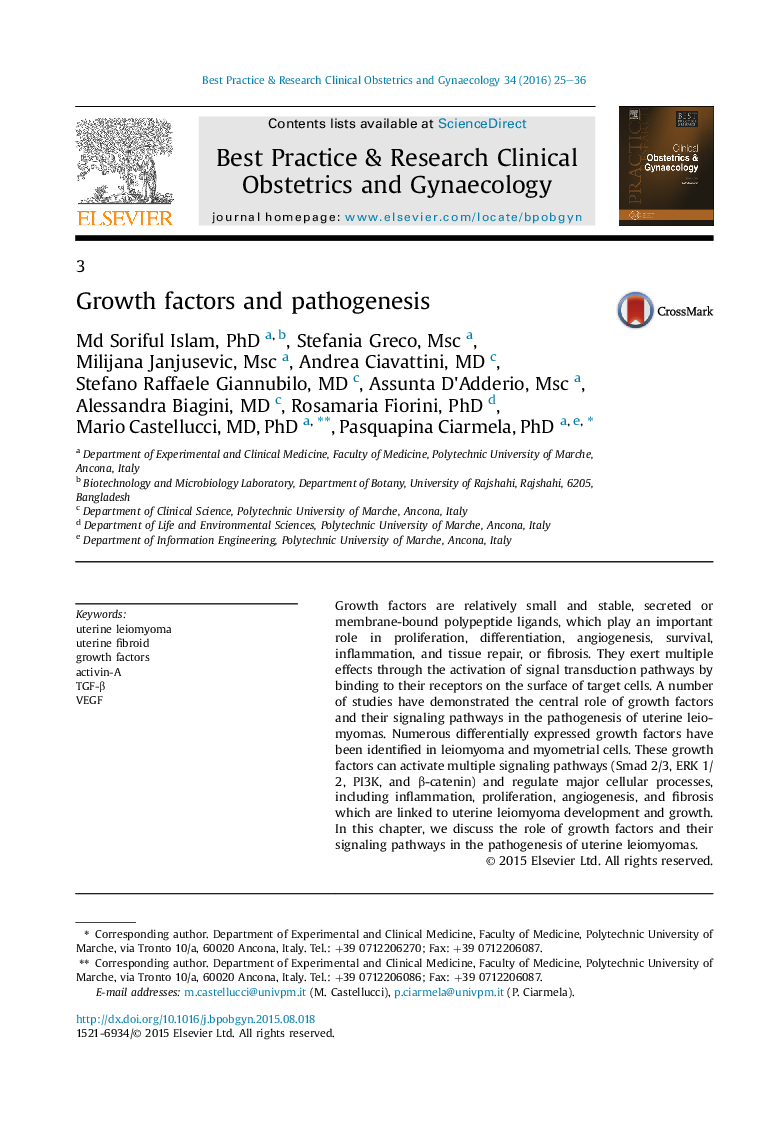| Article ID | Journal | Published Year | Pages | File Type |
|---|---|---|---|---|
| 6169078 | Best Practice & Research Clinical Obstetrics & Gynaecology | 2016 | 12 Pages |
â¢Leiomyoma cell growth is dependent on ovarian hormone activity through growth factors.â¢Growth factors exert their effects activating multiple signal transduction pathways.â¢Growth factor signaling pathways include Smad 2/3, ERK 1/2, PI3K, and β-catenin.â¢Therapeutic compounds downregulate growth factors and their signaling pathways.â¢Growth factors are attractive therapeutic targets for the treatment of fibroids.
Growth factors are relatively small and stable, secreted or membrane-bound polypeptide ligands, which play an important role in proliferation, differentiation, angiogenesis, survival, inflammation, and tissue repair, or fibrosis. They exert multiple effects through the activation of signal transduction pathways by binding to their receptors on the surface of target cells. A number of studies have demonstrated the central role of growth factors and their signaling pathways in the pathogenesis of uterine leiomyomas. Numerous differentially expressed growth factors have been identified in leiomyoma and myometrial cells. These growth factors can activate multiple signaling pathways (Smad 2/3, ERK 1/2, PI3K, and β-catenin) and regulate major cellular processes, including inflammation, proliferation, angiogenesis, and fibrosis which are linked to uterine leiomyoma development and growth. In this chapter, we discuss the role of growth factors and their signaling pathways in the pathogenesis of uterine leiomyomas.
